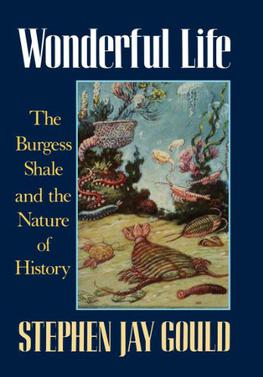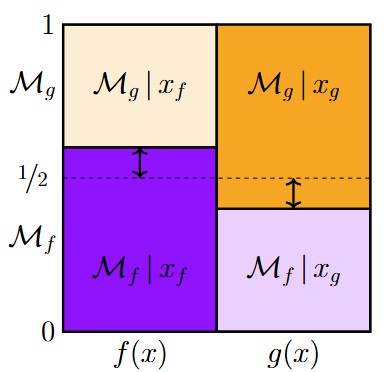In his highly influential book ‘Wonderful Life’, Harvard paleontologist Stephen Jay Gould proposed that evolution is an unpredictable process that can be characterized as
“a staggeringly improbable series of events, sensible enough in retrospect and subject to rigorous explanation, but utterly unpredictable and quite unrepeatable. Wind back the tape of life to the early days of the Burgess Shale; let it play again from an identical starting point, and the chance becomes vanishingly small that anything like human intelligence would grace the replay.” (Gould, 1989, p. 45)
According to Gould himself, the Gedankenexperiment of ‘replaying life’s tape’ addresses “the most important question we can ask about the history of life” (p. 48):
“You press the rewind button and, making sure you thoroughly erase everything that actually happened, go back to any time and place in the past–say, to the seas of the Burgess Shale. Then let the tape run again and see if the repetition looks at all like the original. If each replay strongly resembles life’s actual pathway, then we must conclude that what really happened pretty much had to occur. But suppose that the experimental versions all yield sensible results strikingly different from the actual history of life? What could we then say about the predictability of self-conscious intelligence? or of mammals?” (Gould,1989, p. 48)
For a determinist, Gould’s Gedankenexperiment presents a triviality: when rerun “from an identical starting point”, the laws of nature will inescapably cause the exact same process to unfold; instead of being “vanishingly small”, the chance that “anything like human intelligence would grace the replay” is a dead certainty — such is the iron grip of causality and necessity. All reruns of the tape are identical, not unlike those of an actual physical tape.1 The determinist may add that the events that have occurred are not “staggeringly improbable” — quite the opposite; by actually occurring, the events have revealed themselves to be necessary and inevitable since the dawn of time.
Gould’s Gedankenexperiment can be rescued in one of three ways. First, one may argue that the universe is not deterministic, and seek refuge in quantum mechanics.2 Second, one may propose that, when the tape is rerun, the starting point is perturbed in a way that human observers would be unable to tell the difference. Every time the tape is rerun, the worlds are now slightly different, and one may wonder whether similar outcomes will be observed. Of course, now that the worlds are different, a skeptic may question their relevance. In other words, the argument ‘If an XXL asteroid had not struck the earth, dinosaurs would still reign supreme’ may be countered by ‘And if my grandma had wheels, she would be a bicycle’: in other words, for a determinist the statement ‘if an XXL asteroid had not struck the earth’ refers to an impossibility (because an XXL asteroid did in fact strike the earth), and this invalidates any conclusions that follow from it.
A third way to rescue Gould’s Gedankenexperiment is to rerun the tape and then ask: ‘how plausible is it, in the mind a hypothetical human-like observer, that anything like human intelligence would materialize?’ This version of Gould’s Gedankenexperiment could possibly be ongoing right now. To an alien civilization far removed from earth, the information about our planet will be outdated by millions of years — the time it takes the light from our planet to traverse the distance. To this alien civilization, then, it may appear as if the earth is just about to form, or still dominated by dinosaurs. Would this alien civilization find it plausible that something like human intelligence would evolve?3
Footnotes
1 Ignoring wear and tear. And quantum effects, of course :-).
2 Even when we reject determinism and assume that quantum mechanics yields inherently unpredictable outcomes, it is not immediately clear to the present writer how much of an influence quantum effects could have on reruns of the `tape of life’, which arguably depends on macroscopic events such as asteroids striking the earth.
3 We have to assume that the aliens are about as intelligent as humans; if the aliens were virtually omniscient, they would attach a very high probability to the event of ‘something like human intelligence evolving on earth’, because this is what actually happened.
References
Gould, S. J. (1989). Wonderful Life: The Burgess Shale and the Nature of History. New York: W. W. Norton & Company.
About The Author




